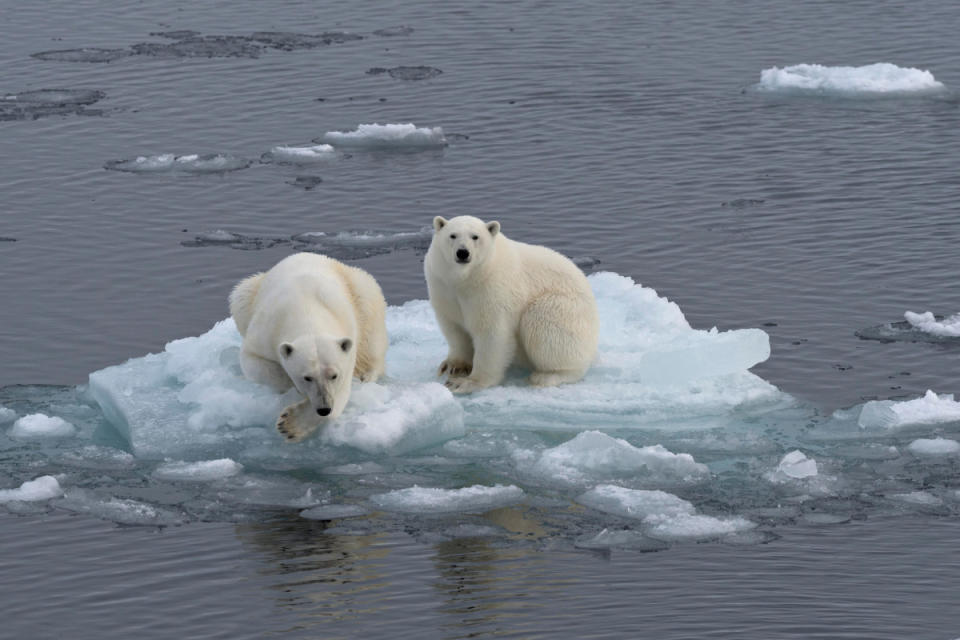Sweet Image of a Napping Polar Bear Wins Wildlife Photography Award
London's Natural History Museum has announced the winner of this year's award for Wildlife Photographer of the Year People's Choice Award, and the winning image is just gorgeous.
British amateur photographer Nima Sarikhani had their photo, entitled "Ice Bed," chosen out of 25 finalists.
The Facebook post quotes Sarikhani who said, ‘It is such an honour to have my work recognized alongside the many amazing winners of the Wildlife Photographer of Year. Winning this award in this prestigious competition truly feels like a dream come true! Thank you so much to everyone who took the time to vote for it. I love that this image stirs so much emotion in people. Some find it happy and peaceful, and some find it somehow melancholic or ominous. Whilst climate change is the biggest challenge we face, I hope that this photograph also inspires hope; there is still time to fix the mess we have caused.'
Related: Polar Bear Cam Shows Bear Gearing Up for the Upcoming Winter Wonderland
On the website for the National History Museum Sarikhani explains how they were able to get this shot. "Nima spent three days searching for polar bears aboard an expedition vessel but had been thwarted by thick fog around the Norwegian islands. Fortunately, his luck was about to change when, on coming across an area of sea ice, the ship encountered a pair of bears – one younger and one older male. Shortly before midnight, the younger male decided to rest. Under the light of the midnight sun, the bear used its powerful arms to claw out a bed on a small iceberg before drifting off to sleep. "
It really is just a gorgeous peaceful image.
About the Islands of Svalbard Polar Bears

imageBROKER.com/Shutterstock
The islands of Svalbard is the Arctic Ocean are home to 19 populations of polar bears. These bears walk between the different islands over sea ice, and they use the ice as a platform to hunt their prey like walruses and seals.
There has been a loss of sea ice over shallow water areas which scientists believe is affecting the animals. The lack of ice means the bears have to swim much longer distances to hunt, build dens and find mates. Dr. Jon Aars, a researcher with the the Norwegian Polar Institute, was quoted as saying, "The loss of sea ice has reduced the genetic diversity of Svalbard’s resident polar bears. With fewer bears traveling across the ice between islands, there aren’t as many opportunities for different groups to mix. This is leading to increased inbreeding among resident bears.’
Let's hope even with the loss of sea ice these gorgeous animals are able to adjust and survive.
Looking for more PetHelpful updates? Follow us on YouTube for more entertaining videos. Or, share your own adorable pet by submitting a video, and sign up for our newsletter for the latest pet updates and tips.

